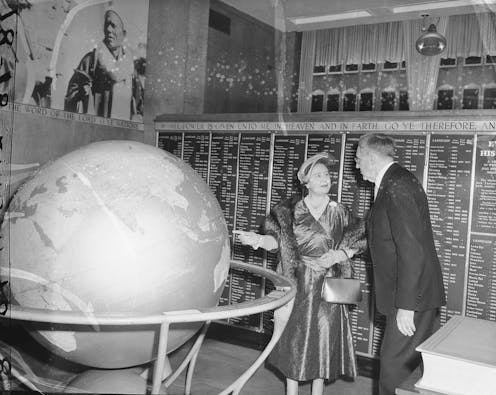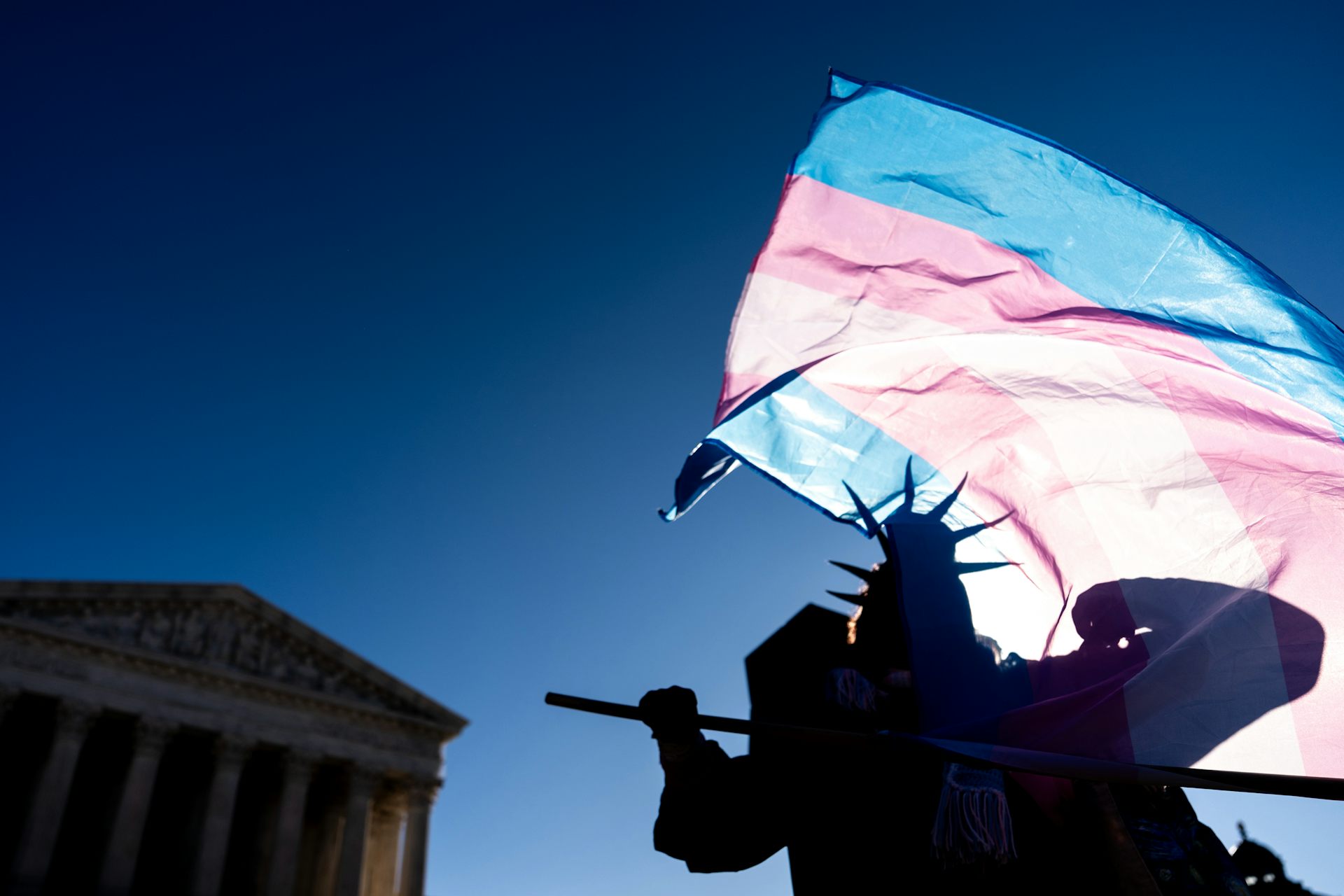How the American Bible Society became evangelical
The American Bible Society, with an annual revenue of nearly $370 million, is one of the largest religious nonprofits, and a highly influential one.

The American Bible Society, an organization that for over 200 years has been on a mission of distributing Bibles, has produced a statement of faith and lifestyle expectations that must be signed by all employees. The statement, which the ABS is calling an “Affirmation of Biblical Community,” requires employees to embrace a host of Christian beliefs and practices, including that marriage is between a man and a woman.
Many gay ABS employees have already left the organization. Others are planning to leave because they do not feel comfortable working in an environment that opposes gay marriage. For Christians around the world, the American Bible Society represents a highly influential organization. With an annual budget of US$100 million and revenues of over $369 million, it is one of the largest religious nonprofits in the world. Its goal is to translate the Bible into every human language by 2025.
There is nothing unusual with a religious organization making employees sign a statement of faith or requiring them to practice certain behavior that fits with the teachings of historic Christianity. Christian ministries and colleges, for example, do this as a matter of course.
But the fact that the ABS has decided to adopt such a statement after functioning for 202 years without one does make this development noteworthy. As the author of perhaps the only scholarly history of this storied Christian organization, I can attest that the “Affirmation of Biblical Community” represents a definitive break with the vision of its founders.
It also represents the culmination of a roughly 20-year transformation of the Society from a diverse Christian organization to a ministry with strong ties to American evangelicalism.
History of distributing Bibles

Early 19-century Bible societies, such as the American Bible Society and the British and Foreign Bible Society, were service organizations. The American Bible Society published Bibles for churches and other ministries and allowed religious organizations to use them as they saw fit in the context of their particular denominational beliefs.
They were not in the business of interpreting the Bible for their constituencies.
For example, in 1835, the British Baptist Mission in Calcutta, India, appealed to the ABS for help in funding a translation of the New Testament into the Bengali language. ABS refused to fund the project because the translators of the Bengali Bible translated “baptizo” – the Greek word for “baptism” – in a way that preferred the Baptist practice of completely immersing new converts in a body of water over other forms of baptism, such as the sprinkling of babies.
In this case, the ABS reaffirmed its commitment to publishing the Bible “without note or comment” and reminded the British Baptist Mission that it was not in the business of promoting “local feelings, party prejudices” and “sectarian jealousies.”
Through much of its history, ABS measured success not in terms of conversions or changed lives, but in terms of “tonnage” – the amount of Bibles distributed around the world each year.
Becoming more evangelical
This all changed in 1996 when Eugene Habecker, the president and CEO of ABS, expressed concern over lack of Bible knowledge and questioned whether young people were actually reading the sacred text and applying its spiritual principles to their lives.
In 2001, the organization adopted a new vision statement. It dropped the phrase “without doctrinal note or comment” and added the clause “so that all may experience its (the Bible’s) life-changing message.”
From this point forward, ABS would engage in the practice of teaching and interpretation. The leadership would call this new approach “scripture engagement.”
Other changes took place at ABS under Habecker’s watch. He added more evangelical Christians and Roman Catholics to the board of managers. Some longtime ABS employees believed that Habecker was trying to move the organization away from the mainline Protestantism that defined its identity for much of the 20th century.
Habecker said that he was just trying to make the board more “interconfessional.” He hoped that the people who ran ABS could affirm, “Jesus Christ is Lord” – nothing more, nothing less.
But from this point forward, ABS began working more closely with evangelical groups. They started providing grants for the publication of Bibles to organizations such as Campus Crusade for Christ, the Lausanne Committee for World Evangelism, Liberty University, and a host of evangelical missionary agencies.
Nearly all of the presidents who followed Habecker, including the current President Roy Peterson, have been evangelical Christians.
Redefining a historical identity

The “Affirmation of Biblical Community” needs to be understood in light of this recent history. Christians – Protestant, Catholic or Orthodox – committed to the historical creeds of the early Christian church could gladly sign this document. However, it excludes Christians who, for example, may not affirm a belief in the Virgin Birth, or who are convinced gay marriage is compatible with the teachings of the Bible.
The statement also includes a reference to the Christian doctrine of “regeneration,” the belief that the Holy Spirit instills believers with a new spiritual orientation toward life. While most forms of Christianity believe in some form of this doctrine, it is hard to read its inclusion in the ABS statement as anything but a veiled reference to being “born-again,” another word for the personal conversion experience that has long been a part of evangelical teaching.
Many evangelicals, and I imagine a good number of conservative Catholics, will celebrate the “Affirmation of Biblical Community.” Others will part ways with the organization. Indeed, many already have.
Whatever one thinks about the new statement, it is definitely part of an ongoing effort by the evangelical leadership of ABS to redefine the historical identity of the Bible society movement.
I received travel money from the American Bible Society, access to their archives, and funded research assistant to write *The Bible Cause: A History of the American Bible Society. This piece is based on my research for that book. My agreement with the American Bible Society gave me complete autonomy and control over my work and the book was published with Oxford University Press in 2016.
Read These Next
Kansas revoked transgender people’s IDs overnight – researchers anticipate cascading health and soci
With invalid driver’s licenses and birth certificates, transgender people are at risk for more than…
Massive US attacks on Iran unlikely to produce regime change in Tehran
President Trump has appealed to Iranians to topple their government, but a popular uprising is unlikely…
Iran will respond to US-Israeli strikes as existential threats to the regime – because they are
The latest attack on Iran goes far beyond previous operations by Israel and the US in both scale and…





